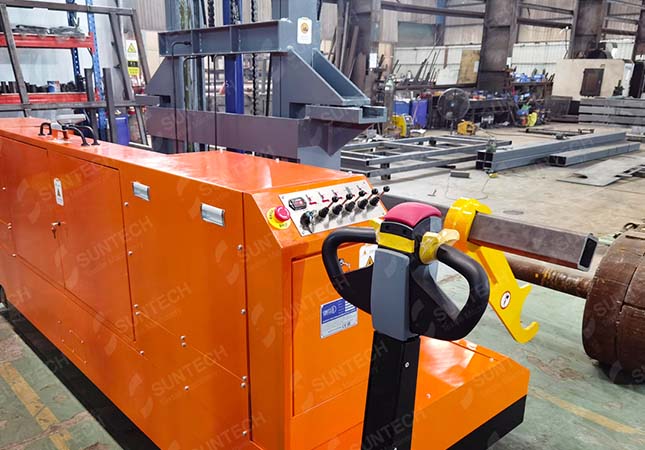Usually, conventional textile manufacturing plants operate 24/7, requiring production staff to work night shifts and weekends. These employees often have rotating shifts, which can disrupt their sleep patterns and add stress due to the constantly changing schedule. During peak production periods, overtime hours are common for these workers. In contrast, management and administrative personnel follow regular office hours, working 40 hours a week, five days a week, with a possibility of some working beyond these standard hours.

The working conditions in textile factories are generally challenging, with most production staff, including front-line managers and supervisors, working rotating shifts within or near the production area. While some factories may have issues such as high noise levels, airborne fibers, and unpleasant odors, modern facilities are typically well-lit, clean, and properly ventilated.
To ensure the safety of workers in certain situations, the use of protective gear such as safety shoes, masks, earplugs, and specialized clothing is essential. Modern machine designs have also integrated additional safety measures like noise shields. However, challenges still exist in the textile industry, where some workers must stand for extended periods while operating bending machines, and dust and noise continue to be problematic in certain factories. Ergonomic concerns are a priority for those working in clothing manufacturing, as operators often sit for prolonged periods and lean against machines.
Addressing the issue of injuries resulting from repetitive motions, companies have implemented modular units and specialized equipment to alleviate strain and reduce potential health risks. Nonetheless, traditional textile manufacturing facilities frequently suffer from poor working conditions, leading to low productivity and increased error rates among workers. As labor costs rise, companies heavily reliant on manual labor face growing challenges in maintaining competitiveness within the industry.
In response to these challenges, numerous clothing manufacturers have opted to redirect their orders to countries with lower labor costs. However, companies that embrace advanced machinery and intelligent facilities can reap significant benefits, including enhanced production efficiency, reduced reliance on manual labor, and ultimately lower overall costs.
To maintain competitiveness and reduce their dependence on labor, textile manufacturers are adopting advanced machinery to boost productivity and revolutionize the nature of their employees' work. This shift towards new technologies also necessitates technical training for workers in the industry. Computer-controlled equipment now plays a vital role in various functions, such as design, plate-making, and cutting. Additionally, emerging technologies like wider looms and computerized equipment are further enhancing factory efficiency.
To counter the intensifying competition, some companies are exploring mergers with other clothing manufacturers and venturing into the retail market. They also employ computer-aided design systems for product life-cycle management, allowing new fashion trends to be distributed globally via the internet. These strategic changes are crucial for the textile manufacturing industry to withstand fierce competition and continue supplying affordable textile products to consumers worldwide.
To maintain competitiveness in the global textile industry, companies must integrate intelligent equipment and production lines into their operations. SUNTECH Textile Machinery, with over 50 years of design experience and technological expertise, has developed an innovative solution to address labor shortages: the motorized warp beam trolley.
The motorized beam trolley features a precise mechanical design that efficiently removes the warp and weft warp beam from the loom and seamlessly loads them onto the trolley. This cutting-edge technology enables smooth transportation of the beams to the warp beam warehouse with minimal effort. The trolley's mechanical lifting capabilities further facilitate loading onto the warehouse.
By replacing manual handling, this technology significantly reduces the labor intensity for textile industry workers while enhancing work efficiency. Moreover, it leads to substantial reductions in labor costs, ultimately improving production outcomes and product quality. The motorized warp beam trolley from SUNTECH exemplifies the power of automation in bolstering productivity and creating better working conditions in the textile industry.
SUNTECH motorized beam trolley technology has achieved extensive usage with over 5,000 customers worldwide and more than 17,000 successful implementations. Customers have reported remarkable improvements in handling efficiency, with a single motorized beam trolley increasing efficiency by over 50%. Through the adoption of this technology, customers have achieved labor and cost savings exceeding 60%, leading to annual savings of several hundred thousand dollars. These impressive outcomes underscore the maturity and effectiveness of SUNTECH motorized beam trolley in optimizing production processes within the textile industry.
The installation process of the warp knitting frame on the machine adheres to standard procedures, ensuring precise positioning of the frame, warp stopper, and contact rods, or the entire warp stopper set, on the loom.
SUNTECH motorized beam trolley intelligently transports a significant number of fabric rolls, fabrics, weaving shafts, and warp warp beams. Its compact footprint, large capacity, swift transportation speed, flexible movement, stable transportation, and easy loading and unloading capabilities make it an ideal solution. Moreover, the trolley exhibits strong adaptability to various sites, enabling efficient production through electrification and intelligent warp warp beam lift trolleys. This leads to reduced labor costs and improved profitability for the textile industry.
For further information, please do not hesitate to contact us.




